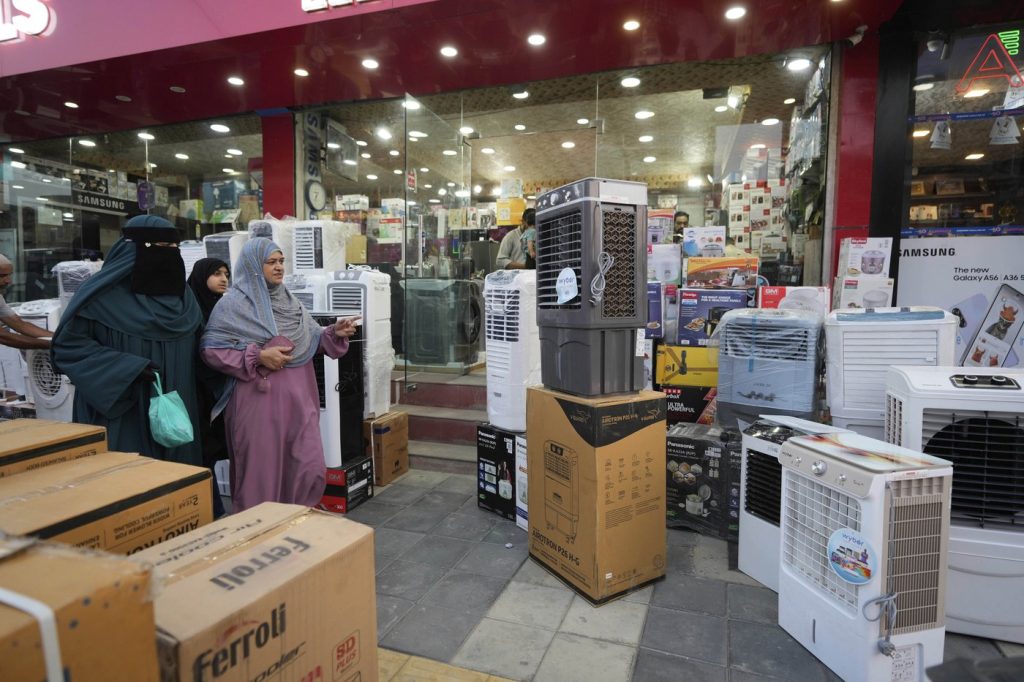BENGALURU, India (AP) – The Indian government is implementing measures to limit temperature settings on new air conditioners as a strategy to conserve electricity in a rapidly growing market for these units. In June, the power minister proposed that air conditioners sold in India cannot be set lower than 20 degrees Celsius (68 degrees Fahrenheit), a change intended to save energy in a country with over 1.4 billion residents. With approximately 10 to 15 million air conditioners sold annually, the push for this regulation is significant as urbanization and rising incomes contribute to increased energy consumption and higher temperatures.
Currently, the lowest temperature setting for air conditioners is 17 degrees Celsius (62 degrees Fahrenheit). The government claims that raising the temperature setting by each degree can result in up to a 6% reduction in energy use. However, reactions to this proposal are mixed among citizens living in India's hottest urban areas. For instance, Vikram Kannan, a teacher residing in Chennai, emphasized the importance of low temperature settings due to the city's extreme heat and humidity, which can cause health issues for his daughter.
Air conditioning units are becoming one of the largest consumers of electricity in India. According to researchers at the University of California, Berkeley, room air conditioners are responsible for approximately 25% of the electricity consumed during peak usage times, with new units contributing to a surge in demand equivalent to powering New Delhi for one year. The country's extreme summer temperatures can soar up to 51 degrees Celsius (124 degrees Fahrenheit), exacerbating the situation and leading to anticipated power shortages if current patterns are not addressed. Furthermore, India's high energy demand plays a significant role in its status as one of the largest emitters of greenhouse gases.
Experts note that while the new temperature regulation is a positive initiative, it alone will not be sufficient. There is a consensus that more stringent energy efficiency regulations for air conditioners would have a greater impact. For example, the energy demand peaks twice daily in major cities like Delhi, significantly influenced by air conditioning usage. While solar power can help meet daytime energy needs, night-time reliance is still mainly on fossil fuels.
This proposal is part of a broader government strategy to encourage energy conservation in recent years. Previous initiatives have included mandating government offices to maintain a minimum cooling temperature of 24 degrees Celsius (75 degrees Fahrenheit) and launching the Mission Life program in 2022, aimed at promoting reduced emissions and lower energy consumption among the public. However, these efforts have received varied responses from citizens.
Supporters of the new air conditioner regulation like Surjeet Singh argue that such changes could make living conditions safer and lower electricity bills. Conversely, others think people have grown too accustomed to air conditioning. Sunil Kumar suggested that investing in urban greenery, such as planting trees, could reduce city heat and lessen the dependency on air conditioning.
Experts like Nikit Abhyankar from the University of California highlight the importance of adopting more energy-efficient models of air conditioners. Research indicates that many air conditioning units currently sold in India are so inefficient that they would not be permitted in many other countries, including China. In fact, around 80% of these units would be banned in China due to their inefficiency. Addressing the challenge of replacing the 80 million less efficient units in India is crucial for improving energy conservation.
Further measures to reduce energy consumption could include ensuring new buildings have proper ventilation and incorporating smart technologies in air conditioning systems. Abhyankar suggests that the simultaneous use of ceiling fans can significantly lower the energy consumption of air conditioning, as it helps cool rooms more rapidly. Overall, the Indian government's proposed regulation on air conditioner temperature settings represents a significant step towards addressing the pressing issue of energy consumption in an increasingly hot and populous nation.











